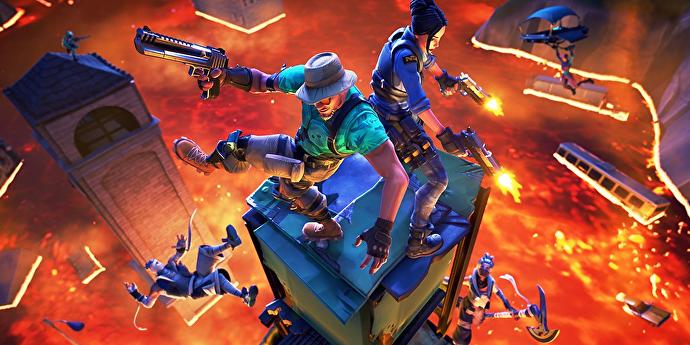Fortnite's success spurred brutal crunch at Epic, employees say
Some employees reported working 70 hours per week for months at a time.

Epic Games head of publishing Ed Zobrist pointed out something interesting about Fortnite Battle Royale last year: The transition from Fortnite, "a mildly-popular PvE building game," to Fortnite Battle Royale—the biggest game on the planet—took about two months. The decision to move to a standalone, free-to-play model was even more last-minute, coming in the last two weeks of the mode's development.
"I doubt any major publisher could have pulled off this kind of pivot in the time we ended up doing it," said Zobrist.
The cost of Fortnite's success, according to a new Polygon report, is that the feverish pace has continued, leaving employees faced with ridiculously long work-weeks that are technically voluntary, but not really. One employee said they average 70 hours of work per week, and claimed that others "pull 100-hour weeks."
"The company gives us unlimited time off, but it’s almost impossible to take the time. If I take time off, the workload falls on other people, and no one wants to be that guy," the employee said. "The biggest problem is that we’re patching all the time. The executives are focused on keeping Fortnite popular for as long as possible, especially with all the new competition that’s coming in."
An Epic rep acknowledged that the company's employees "are working very hard on Fortnite and other Epic efforts," and said that when it becomes aware of things like employees working dangerously long hours, it takes steps to remedy the situation. But the problem is systemic: New features are added at a breakneck pace, and when they don't work out for one reason or another, they're pulled to be fixed or reworked as necessary, and as quickly as possible. The pro scene, with millions of dollars on the line in high-stakes competition, is differently, but equally, chaotic.
"The executives keep reacting and changing things," a source told the site. "Everything has to be done immediately. We’re not allowed to spend time on anything. If something breaks—a weapon, say—then we can’t just turn it off and fix it with the next patch. It has to be fixed immediately, and all the while, we’re still working on next week’s patch. It’s brutal."
Epic obviously has lots of money to throw at the problem, and to that end has more than doubled its full-time employee count since the release of Fortnite. It's also contracted independent game studios to help relieve the pressure. But the demands of Fortnite's success have kept the pressure on and the hours long. "You’re on a contract. It could be three months, it could be a year. But if you don’t do the extra work, it’s most likely that your contract won’t be renewed," one worker told Polygon.
The biggest gaming news, reviews and hardware deals
Keep up to date with the most important stories and the best deals, as picked by the PC Gamer team.
Reports of life-crushing crunch are nothing new in the videogame industry, but the rise of the "games as a service" model has the potential to make a bad situation worse. "Death march" crunch is destructive and arguably unproductive, but at least there's a goal; with games like Fortnite, there is no end point. Success breeds demand, and the fear of letting it slip away means nobody wants to ease off the throttle.
The sadly unsurprising report is worth a read in full, if only to remind yourself that there are actual human beings behind the games we all love so much. Hit it up at Polygon.

Andy has been gaming on PCs from the very beginning, starting as a youngster with text adventures and primitive action games on a cassette-based TRS80. From there he graduated to the glory days of Sierra Online adventures and Microprose sims, ran a local BBS, learned how to build PCs, and developed a longstanding love of RPGs, immersive sims, and shooters. He began writing videogame news in 2007 for The Escapist and somehow managed to avoid getting fired until 2014, when he joined the storied ranks of PC Gamer. He covers all aspects of the industry, from new game announcements and patch notes to legal disputes, Twitch beefs, esports, and Henry Cavill. Lots of Henry Cavill.

